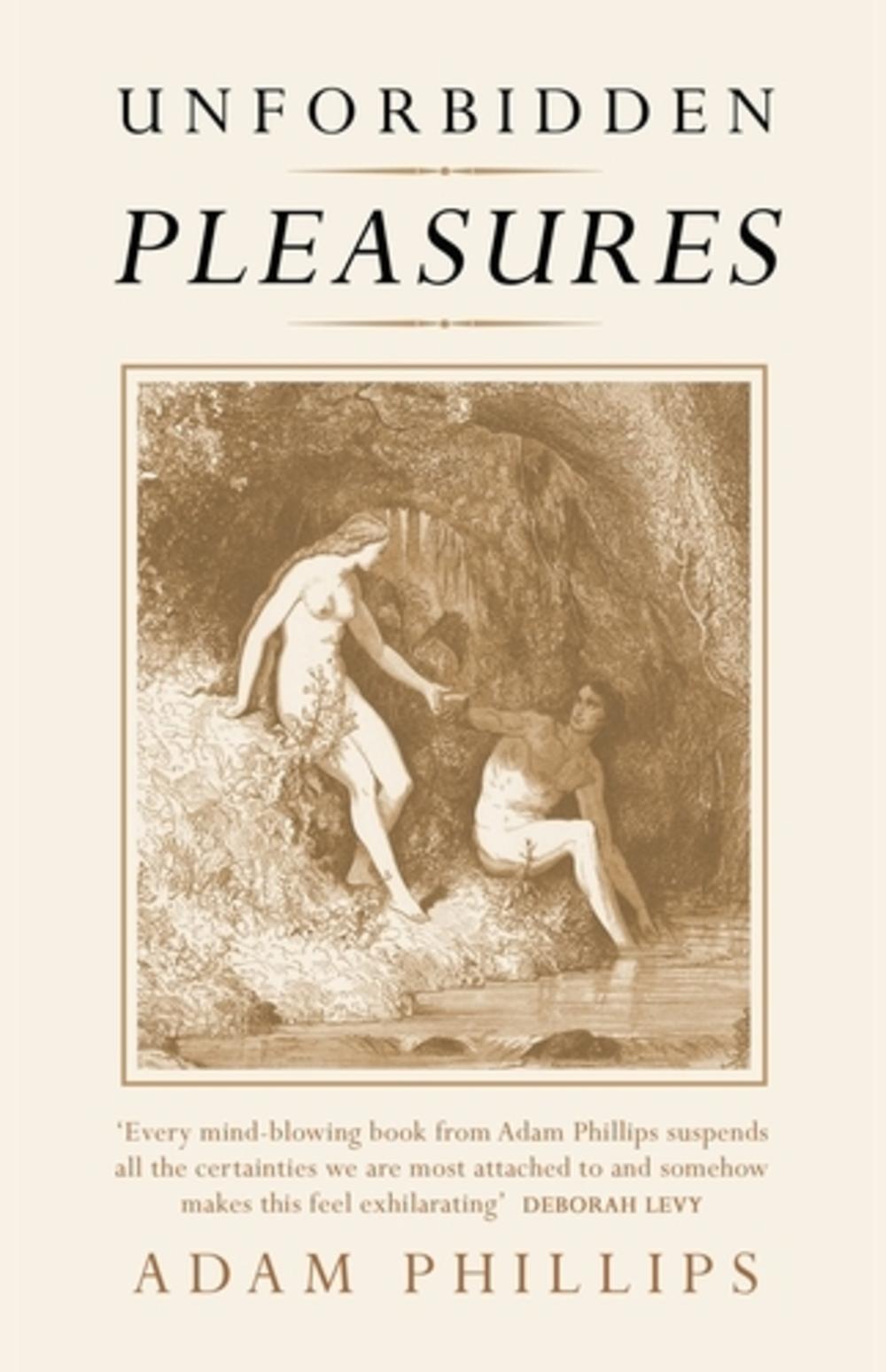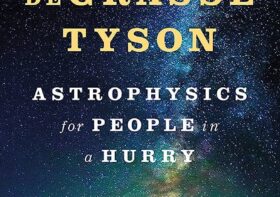Unforbidden Pleasures – Adam Phillips

వ్యాసకర్త: Nagini Kandala
*************
ఆ మధ్య ఇంతియాజ్ అలీ సినిమా ‘తమాషా’ అని ఒకటొచ్చింది. ఎంత త్వరగా వచ్చిందో అంత త్వరగానే వెళ్ళిపోయింది. మెజారిటీ ప్రేక్షకులకి అసలు ఆయనేం చెప్పాలనుకున్నారో అర్థం కాలేదో లేక ఆయన చూపించిన ‘మనిషి’ ని ఎవరో గ్రహాంతరవాసనుకుని తాము అనుభవించే forbidden pleasures లో ఉన్న సౌకర్యానికి అలవాటుపడిన సగటు ప్రేక్షకులు unforbidden pleasures గురించి ఆలోచించడం మానేశారో మరి, నీషే భాషలో చెప్పాలంటే ‘instinct for life’, ‘the herd instinct’ గా రూపాంతరం చెందిన ఈ కాలంలో ఆ సినిమా ఒక ఫ్లోప్. మరి కట్టుబాట్ల మధ్య ‘comfortable zone’ లో హాయిగా దొరికిన సంతోషాన్ని అనుభవిస్తూ అసలు అలాంటి unforbidden pleasures అంటూ ఏవో ఉంటాయన్న స్పృహ కూడా లేకుండా జీవిస్తున్న మనుషులు అసలైన అదృష్టవంతులు అనుకుంటే, ఒక చట్రంలో ఇమడలేక, తమ ఉనికిని నిరంతరం ప్రశ్నించుకుంటూ, దొరికినదానితో తృప్తి పడకుండా జీవితంనుంచి ఇంకేదో కావాలని అలమటించే దురదృష్టవంతుల (?) కోసం బ్రిటిష్ సైకాలజిస్ట్ ఆడమ్ ఫిలిప్స్ రాసిన పుస్తకమే ఈ Unforbidden pleasures. రూల్స్ ఉన్నవే పాటించడానికి అని కొంతమంది నమ్మితే, అవి ఉన్నవే బ్రేక్ చెయ్యడానికి అని కొంతమంది అంటారు. కానీ అసలు రూల్స్ అనేవే లేకపోతే, ఎదిరించడం, ఆ ఎదిరించడం తాలూకూ సంఘర్షణల్లాంటివి ఏమీ ఉండవు కదా అంటారు ఆడమ్ ఫిలిప్స్. ఈ పుస్తకమంతా ఈ వాదనను సమర్థించే దిశగానే సాగుతుంది.
‘We teach people how to remember, we never teach them how to grow,’ అంటారు ‘The critic as artist’ లో ఆస్కార్ వైల్డ్. ఒక బిడ్డ పుట్టింది మొదలు ఒక మట్టి ముద్దకి ఆకారం ఇచ్చే రీతిలో తల్లిదండ్రులూ, చుట్టూ ఉన్న సమాజం దానిని తమ సంస్కృతీ సంప్రదాయాలకు ప్రతీకగా మార్చడానికి ప్రయత్నిస్తుంది. ‘ఇది గుర్తు పెట్టుకో’, ‘ఇది మంచి’, ‘ఇది చెడు’, ‘ఇలాగే ఉండడం సంస్కృతి’, ‘ఇలా ఉండటం నాగరికత’ అంటూ తాము ఏర్పాటుచేసిన సరిహద్దుల్ని దాటొద్దంటుంది. దానికి అనుగుణంగానే పుట్టిన పసికందు కూడా సర్వైవల్ ఇన్స్టింక్ట్ తో తొలిగా తల్లి ఆమోదం పొందడం కోసం తన ప్రవర్తనను మార్చుకోవడం మొదలుపెట్టి, క్రమేపీ సమాజపు అచ్చులో సుఖంగా ఇమిడిపోతాడు. కానీ ఇలా ఒక సంస్కృతిలో భాగమయ్యే క్రమంలో మనిషి చెల్లిస్తున్న మూల్యం ఏంటి? సాంఘిక కట్టుబాట్లకు వ్యతిరేకంగా నియమోల్లంఘన చేస్తే నైతిక విలువలు లేనివారిగా జమకట్టి సంఘం నుండి వెలివేస్తారనే భయంతో సోషల్ కండిషనింగ్ కి లోబడితే దొరికే సౌకర్యవంతమైన జీవితంకోసం unforbidden pleasures ని గమనించకుండానే ముందుకెళ్ళిపోతున్నాడా? సమాధానంగా అవునంటారు రచయిత. ఈ ‘Unforbidden Pleasures’, వివిధ సందర్భాలనుంచి గ్రహించబడిన వ్యాసాల సంకలనం.
మరి మనిషి పురోభివృద్ధికి పరోక్షంగా హానికరంగా మారిన ఈ పరిణామాన్ని తొలిగా గుర్తించిన కట్టుబాట్లకావలి ప్రపంచానికి చెందిన ఆర్టిస్టులు తమ తిరుగుబాటును ప్రకటించే దిశగా, భాషను శక్తిమంతమైన మాధ్యమంగా గుర్తించి అప్పటివరకూ వాడుకలో ఉన్న పదజాలాన్ని మార్చేదిశగా నడుంకట్టారు. రొమాంటిసిజం తరువాత 19 వ శతాబ్దం చివర్లో ఊపందుకున్న ఎస్తెటిక్ మూవ్మెంట్ లో మానవజాతిలో కొన్ని నియమాలకు కట్టుబడి ఉన్నామనే భావనను రూపుమాపే ప్రయత్నంలో, అంతవరకు వాడుకలో ఉన్న పదజాలం స్థానంలో ఆధునిక జీవనవిధానానికి ప్రాతినిధ్యం వహించే నూతన పదజాలాన్ని Pater, Wilde లాంటివాళ్ళు వాడుకలోకి తెచ్చారు. ఉదాహరణకు ‘good’ or ‘right’ (or ‘sacred’) ల బదులు ‘beautiful’ or ‘pleasurable’ or ‘enlivening’ లాంటి పదాల్ని విరివిగా ఉపయోగించారు.
కానీ తరతరాలుగా ఒక ఆధిపత్యం నుంచి విముక్తి కోసం చేసే ప్రయత్నం మరో ఆధిపత్యం క్రిందకి చేరడంతోనే ముగుస్తోంది. ఒక నియమాన్ని ఉల్లంఘించడం మరో నియమాన్ని పాటించడం దగ్గర ఆగుతుంది. ఉదాహరణకు ఒక దేవుణ్ణి కాదని మరో దేవుణ్ణి నమ్మడం, అసలు దేవుడే వద్దనుకుంటే మరో మనిషిని దేవుడి స్థానంలో కుర్చోపెట్టడంలాంటివన్నమాట. అదే విధంగా విక్టోరియన్లు భాషలో కొన్ని మార్పులు చేసినా మళ్ళీ కథ మొదటికే వచ్చింది. అందువల్ల మనుషులు forbidden pleasures తో జీవిస్తున్నారు గానీ, జీవించడంలో సంపూర్ణమైన ఆనందాన్ని రుచిచూడలేకపోతున్నారని వైల్డ్, నీషే, ఫ్రాయిడ్ లాంటివారి వాదన. తొలి భాగం ‘Laying down the law’ లో నీషే ‘ది గే సైన్స్’, Thus Spoke Zarathustra, వైల్డ్ ‘ది సౌల్ అఫ్ మాన్ అండర్ సోషలిజం’ నుండి గ్రహించిన సిద్ధాంతాలను సమాంతరంగా చర్చించారు. నీషే,వైల్డ్ ల దృష్టిలో మనిషి ఒక ‘evaluating animal’ యే గానీ కేవలం obedient animal కాదు. అందువల్ల మనకి కోరికలున్నాయి కాబట్టి చట్టాలు లేవు. మనకి చట్టాలున్నాయి కాబట్టి కోరికలు ఉన్నాయి అంటారు. అలాగే ఫ్రాయిడ్ మనిషిని నిర్వచించే క్రమంలో ప్రవృత్తి, నైతికత,అహం లాంటివి అన్నీ ఉంటాయి గానీ వీటిన్నంటినీ కలిపి ఉంచే ‘సెల్ఫ్'(నేను) అంటూ ఏమీ ఉండదని సంప్రదాయ విరుద్ధంగా (సెక్కులర్) వాదించి సైకో అనలిస్టులను సైతం దిగ్భ్రాంతికి గురి చేశారు.
ఆస్కార్ వైల్డ్ నైతికత కంటే ఎస్తెటిక్స్ ముఖ్యమంటారు. మనిషి నైతికతకు కట్టుబడి చెయ్యలేని పనిని చెయ్యడానికి కళను ఆశ్రయిస్తాడు.
And this is where art comes in: ‘All art is immoral,’ Wilde said, and so it is in art that we recover our real pleasures; we recover everything morality forces us to renounce.
Once the power of redescription is acknowledged, words like ‘true’, ‘good’, ‘right’, ‘sacred’ – and, of course, ‘forbidden’ – are among the first casualties.
‘To forget (or to unlearn) a vocabulary is to foster a remembering of a different self – the enigmatic self, the only self we are ever going to have, if we want to have a self – and its plenitudes and pleasures (‘the have-nots and the yearning ones … have formed linguistic usage’, Nietzsche remarks in 1887 in The Gay Science). It is to a celebration of so-called selfishness – his own redescription of ‘selfishness’ – that Wilde invites us; to the laying down of a different kind of law.
Morality, as Wilde and Nietzsche would also say, was a servile oversimplification of ourselves in the service of self-protection.
రెండో భాగం Tricks of obedience లో ఈ సోషల్ కండిషనింగ్ కి కారణాలను విశ్లేషిస్తూ,శిశువు పుట్టినప్పటినుండీ విధేయతతో మెలగడం నేర్చుకుంటుందనీ, ఈ విధేయత నేర్పడంలో (దురదృష్టవశాత్తూ) తల్లే ఆది గురువనీ అంటారు. తొలుత తల్లిదండ్రులకు, తరువాత చుట్టూ ఉన్న సమాజానికీ అనుగుణంగా విధేయతతో మెలగడం మొదలు పెట్టిన శిశువు తన ప్రమేయం లేకుండానే ఆ సంస్కృతి తాలూకూ ముసుగులో సౌకర్యవంతమైన జీవితానికి అలవాటుపడుతుంది. అలా క్రమేపీ ఈ విధేయత కారణంగా తన స్వతఃసిద్ధమైన అస్థిత్వాన్ని కోల్పోతుంది.
In the worst-case scenario, in the words of Frank Bidart’s poem ‘By These Waters’, ‘What begins in recognition, – … ends in obedience.’
Obedience, then, is an unforbidden pleasure sponsored by the forbidden pleasure of intimidation.
20వ శతాబ్దపు బ్రిటిష్ పీడియాట్రిషియన్ మరియు సైకో అనలిస్ట్ D.W.Winnicott వాదన ప్రకారం: a man of Dissenter stock, what is to be feared in early development is ‘that the infant shall give up spontaneity in favour of compliance with the needs of those who are caring for the infant’; and as he wrote in The Family and Individual Development, he is justly reassured when a five-month-old infant ‘did not pass over into a compliant state, which would have meant that she had given up hope’
It can be comforting to be trapped in other people’s descriptions of oneself – and the infant is more or less his parents’ descriptions of him.
Obedience is the unforbidden pleasure that gives us something by forbidding us something else – something often of ultimate value.
మిల్టన్ పారడైస్ లాస్ట్ ను ప్రస్తావిస్తూ ఆడమ్, ఈవ్ ల కథనూ,వారు దేవుడు చేసిన నియమాలను అతిక్రమించిన పరిణామాలను ఈ ‘విధేయత’ కోణంలో చర్చించారు. వద్దని వారించిన పని చెయ్యడం వల్ల వారు కొత్త ప్రపంచాన్ని తెలుసుకున్నారు. అసలు వారిలో అలా తెలుసుకోవాలనే కుతూహలాన్ని కలించడం కోసమే, వారి విధేయతకు దేవుడు పరీక్ష పెట్టాడేమో అంటారు రచయిత. ఎందుకంటే విధేయత అంటే ఏదీ తెలుసుకోడానికి ఇష్టపడని అజ్ఞానం, నియమాలు మాత్రమే గుర్తుపెట్టుకుని అభివృద్ధిని వద్దనుకునే జాడ్యం అంటారు. పారడైస్ లాస్ట్ ను ఆడమ్ ఈవ్ ల unforbidden pleasures ని రికవర్ చెయ్యడంలో భాగంగా అభివర్ణిస్తారు.
In the Genesis story, unforbidden pleasures come first and are found to be insufficient. But insufficient for what? What are the unforbidden pleasures depriving Adam and Eve of? All they know before the Fall is that there is something they must not do, which means there is something they must not want. But knowing this makes it known (and wanted); they needn’t, after all, have been told, and then presumably they would not have known not simply what they were missing, but that there was something they were missing. So in the beginning was a tantalization. A temptation was created. And it was created by a demand for obedience; obedience being required because its alternative is worse – whatever that alternative is assumed to be; it being the function of obedience to persuade us that there is no real, no viable, alternative.
మూడో భాగం Against self-Criticism లో ఫ్రాయిడ్ ‘Superego’ ను విస్తృతంగా చర్చిస్తారు. ఫ్రాయిడ్ షేక్స్పియర్ నాటకం హేమ్లెట్ లో కింగ్ క్లాడియస్ conscience ను పట్టుకోవాలనే హామ్లెట్ ప్రయత్నాన్ని ఉదహరిస్తూ conscience ను రోజువారీ క్యారెక్టర్ assassination గా పేర్కొంటారు. క్లాడియస్ పట్ల ప్రతీకారేచ్ఛ హేమ్లెట్ ను అతనికంటే ప్రమాదకరమైన వ్యక్తిగా మార్చి అతని అస్థిత్వాన్ని కోల్పోయేలా చేసిదంటారు. ఇందులో మనిషిని తన ఆధీనంలోకి తీసుకుని,స్వతంత్రంగా ప్రవర్తించే సూపెరిగో పాత్రను చర్చించారు. మనిషి చెయ్యాలనుకున్న పనిని చెయ్యనివ్వకుండా అడ్డుకోవడంలో ‘Superego’ ప్రధాన పాత్ర పోషిస్తుందనీ అలాగే మనోవైకల్యాలకి కారణాలు వెతికే క్రమంలో మనిషి తనకి తెలీకుండా మనో వైకల్యం బారిన పడతాడనీ, ఈ వాదనను సమర్ధిస్తూ వైల్డ్, నీషే ల జీవితాల్లోని చీకటికోణాల్ని సాక్ష్యంగా చూపిస్తారు.
The superego’s role in relation to the ego may be compared to that of a judge or a censor. Freud saw conscience,self-observation and the formation of ideals as functions of the superego.’ It is useful to call the superego an agency, because it has agency; and the complementary alternatives – it is like a censor or a judge – speaks of the punitive, the forbidding and the restrictive. So, paradoxically, being forbidden something – being forbidden to speak, or to act, or to think, or to desire in certain ways – can be itself an unforbidden pleasure.
Superego ను నిర్వచించే క్రమంలో ఫ్రాయిడ్ కు ఇష్టమైన ఫిక్షనల్ క్యారెక్టర్ Don Quixote (madman), అతని గుఱ్ఱం Rocinante కథ చెప్తారు.
The id is the nag Rocinante, the ego is the mad Don Quixote, and the superego is the sometimes amusing, often good-humoured, frequently down to earth and gullible Sancho Panza. ‘Sancho,’ the critic A. J. Close writes in Cervantes: Don Quixote, ‘is proverbially rustic; panza means ‘belly’; and the character of the man is basically that of the clown of sixteenth-century [Spanish] comedy: lazy, greedy, cheeky, loquacious, cowardly, ignorant, and above all, nitwitted.’ What does the Freudian superego look like if you take away its endemic cruelty, its unrelenting sadism? It looks like Sancho Panza. And like Sancho Panza, the absurd and obscene superego is a character we must not take too seriously.
నాలుగో భాగం Unforbidden pleasures లో విశ్లేషణలు అధికారానికో, అవసరానికో లోబడి,దేన్నైనా గుడ్డిగా నమ్మి, నియమాలకు అనుగుణంగా ప్రవర్తించే బదులు దేన్నైనా పరీక్షించి, ప్రయోగం చేసి దానిలో మంచి చెడులు తెలుసుకోవడం అవసరం అన్న వాదనను బలపరిచే దిశగా సాగుతాయి. 2003 లో నెదర్లాండ్స్ లోని Drachten లో Hans Monderman అనే ట్రాఫిక్ ఇంజనీర్ ప్రతిపాదించిన ‘రెడ్ లైట్ రిమూవల్ స్కీమ్స్’ విజయం సాధించడాన్ని ఉదహరిస్తూ ట్రాఫిక్ రూల్స్ ఉండడం వల్ల మనుషులు పరాకుగా, బాధ్యతా రాహిత్యంగా ఉంటారనీ, అదే సిగ్నల్స్, రూల్స్ లేనప్పుడు పూర్తి స్థాయి జాగరూకతతో ఉండి జాగ్రత్తగా ప్రయాణించడం వల్ల రోడ్డు ప్రమాదాలు గణనీయంగా తగ్గాయనీ అంటారు. ఈ వాదనను బలపరిచే దిశగా 1956 లో తన ‘Psychoanalysis and Art’ పేపర్ ను టేబుల్ మీద ఉంచారట Milner. వర్డ్స్ వర్త్, బ్లేక్ లాంటివారు బాల్యంలో పూర్తిస్థాయి ‘absorption’ ద్వారా అనుభవించిన unforbidden pleasures ఈ ఆధునిక మానవాళికి అందుబాటులో లేకపోవడమే ఈరోజు ప్రధాన దుఖ్ఖహేతువు అని మిల్నెర్ వాదన. ఆమె థియరీ ప్రకారం,
‘The central idea of my paper,’ she wrote,is that the unconscious mind, by the very fact of its not clinging to the distinction between self and other, seer and seen, can do things that the conscious logical mind cannot do. By being more sensitive to the samenesses rather than the differences between things, by being passionately concerned with finding ‘the familiar in the unfamiliar’ (which, by the way, Wordsworth says is the whole of the poet’s business), it … brings back blood to the spirit, passion to intuition. It provides the source for all renewal and rebirth, when old symbols have gone stale.
The basic identifications which make it possible to find new objects, to find the familiar in the unfamiliar, require an ability to tolerate a temporary loss of sense of self, a temporary giving up of the discriminating ego which stands apart and tries to see things objectively and rationally without emotional colouring.
ఐదో భాగం, Life itself లో, పుట్టుకకు అర్థం, పరమార్థాలను నిర్వచించే ప్రయత్నం చేశారు. నీషే నలభై రెండేళ్ల వయసులో తాను రాసిన తొలి పుస్తకాన్ని సమీక్షించుకుంటూ విచారం వ్యక్తం చేస్తారు. అప్పటికి Immanuel Kant, Arthur Schopenhauer లను విస్తృతంగా చదివిన తన ఆలోచనలు వారిద్దరి పదజాలలో ఇరుక్కుపోయి తన అస్తిత్వాన్ని కోల్పోయానంటారు. ఒకప్పుడు నీషే ఆరాధించిన Schopenhauer, Silenus ల తత్వాన్ని తరువాత కాలంలో ఆయనే విమర్శించారు. పూర్తి స్థాయి నిరాశావాది Schopenhauer ఆలోచనల్లో కొట్టుకుపోయి అభివృద్ధిని వద్దనుకోవడం సమంజసం కాదనీ, అసలు పుట్టడాన్ని మించిన ట్రాజెడీ లేదన్న Silenus వాదనల్ని గంభీరంగా తీసుకోవలసిన అవసరం కూడా లేదంటారు నీషే. ఇక్కడ వాటిని కేవలం వారి వ్యక్తిగత అభిప్రాయాలుగా పరిగణించి కొట్టిపారేయ్యాలని అనడం కూడా గమనార్హం. చివరగా ఈ నియమం ప్రతి తత్వశాస్త్రానికి వర్తిస్తుందంటారు. ఇలా భాష, సంస్కృతి, సంప్రదాయాల్లో కొట్టుకుపోయి Unforbidden pleasures ను కోల్పోయిన మానవాళి వాటిని రికవర్ చేసుకునే దారుల్ని వెతకడంలో నాణానికి ఒకవైపున్న ఈ సినిసిజం, నిహిలిజాల సంగతటుంచితే Stanley Cavell ‘Cities of Words’ లో ప్రస్తావించిన ‘Emersonian perfectionists’ లుగా ‘మోరల్ పెర్ఫెక్షనిజం’ సాధించే ప్రయత్నం కూడా మనిషిలో పరిపూర్ణమైన ఆనందానికి అడ్డుకట్ట వెయ్యడమేనంటారు రచయిత. ఆంక్షలతో కూడిన సమాజంలో ఉన్న మనిషికి అసలు unforbidden pleasures తో ఏర్పడిన సమాజం ఎలా ఉంటుందో కూడా అనుభవంలో లేదంటారు. మరి ఆ ప్రపంచాన్ని కూడా ఓసారి చూసొస్తే పోయేదేముందని ఆడమ్ ఫిలిప్స్ వాదన. మరి మనిషిని అనాగరికత నుండి నాగరికతవైపు నడిపించినవి చట్టాలు, కట్టుబాట్లు, ఆంక్షలే అయితే మరి అవి లేని ప్రపంచం ‘కళ్ళెం లేని గుఱ్ఱమా’ లేక ‘స్వేఛ్ఛా విహంగమా’ అన్నదాన్ని చదివేవాళ్ళ ఊహకే వదిలేశారు.
ఈ ఫిలాసఫీ, సైకాలజీ పుస్తకాలు ఇప్పట్లో వద్దు వద్దనుకుంటూనే ఈ పుస్తకం గురించిన కథనాలు చదివి ఆసక్తి అనిపించింది. అవ్వడానికి రెండొందల పేజీల పుస్తకమే అయినా మెదడు మీద భారం మోపే కంటెంట్ కావడంతో కాస్త ఓపిగ్గా చదవాల్సిన పుస్తకం. ఈ తరహా పుస్తకాలు మనకు కొత్తగా తెలీని విషయాలేవీ చెప్పవు. మనిషి మనసులో ఎక్కడో దాగున్న రహస్యాలను మరోసారి గుర్తు చేస్తాయంతే. చదువుతున్నప్పుడు అన్నీ తెలిసినట్లే అర్ధమైనట్లే అనిపించినా రాసే ముందు అసలేం చదివాను అని అనుకుంటూ రెండో సారి సగం పుస్తకం చదివాను. రాసేటప్పుడు ముఖ్యమైన విషయాలు ఎన్ని ఎంచుకున్నా ఇంకా ఏవో మిగిలిపోయాయన్న వెలితి కూడా మిగిలిపోయింది. ఈ రచన ఆడమ్ ఫిలిప్స్ మిగతా రచనలు కూడా దొరికితే చదవాలన్న ఆసక్తి కలిగించింది.
పుస్తకం నుండి మరికొన్ని:
We are always tempted to ask, as Sterne does in The Life and Opinions of Tristram Shandy: ‘is a man to follow rules – or rules to follow him?
It was clear to Hobbes that the only foundations that we have are our fundamental laws; that we are the kind of creatures that, without these so-called fundamental laws, will be in a war of all against all; in endless uncivil civil wars. And this presumably is the logic of the forbidden, of the fundamental laws: it is deemed to be that without which we cannot live, or cannot live the lives we most want (or have been persuaded to want).
In 1934, in A Life of One’s Own, she wrote of her need for ‘a method for discovering one’s true likes and dislikes, for finding and setting up a standard of values that is truly one’s own and not a borrowed mass-produced ideal’.
Freud preferred the multiple view: ‘Each individual,’ he wrote, ‘is a component part of numerous groups, he is bound by ties of identification in many directions, and he has built up his ego-ideal on the most various models.’ The ego-ideal is both composite – made up from many cultural models and influences – and divisive. It keeps alternative models at bay, but it can also be surprisingly inclusive. In this ambiguity, which Freud could never quite resolve, he was wondering just how constricted the modern individual really is, or has to be.
The tyranny of the forbidden is not that it forbids, but that it tells us what we want – to do the forbidden thing. The unforbidden gives no orders.
If this is excessive it may also be the kind of excess that acknowledges what it is up against – and how much people can suffer from other people’s descriptions of themselves (other people’s descriptions of ourselves being what culture is).
And this, I think, is where Samuel Beckett’s Endgame (1957) comes in. Not least because, as Hamm so winningly says, ‘You’re on earth, there’s no cure for that!’ And, as Cavell adds, ‘No cure for that, but perhaps there is something else for it.’
Indeed, in 1859, the year Darwin published On the Origin of Species , John Stuart Mill had written, in what became the manifesto of modern liberalism, On Liberty, in a chapter entitled ‘Of Individuality’, ‘He who lets the world, or his own portion of it, choose his plan of life for him, has no need of any other faculty than the ape-like one of imitation.’
What we have to be wary of now, he suggests, is having too much in common with other people, and indeed with ourselves. We must be wary of being too knowing about knowingness.
Instincts and their satisfaction are now the issue, not faith and doubt, or duty and compassion, or morality and grace. And the instincts are not so much new as long buried. A ‘more various and richly-endowed animal’ is at once expansive, unfrightened and full of excited apprehension.




Leave a Reply